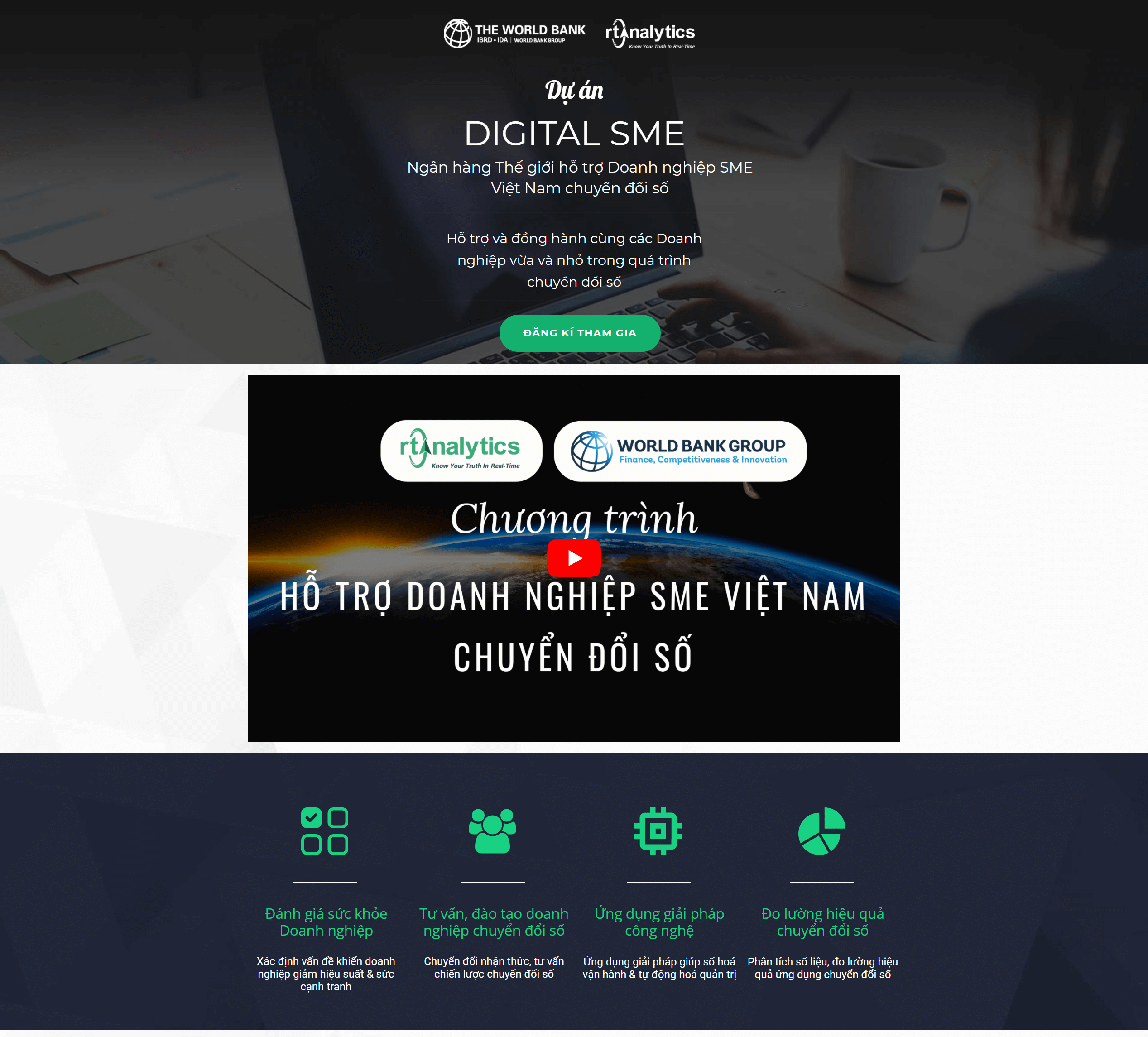
RTA partners with Good to Great to improve technology solutions and processes for SMEs
RTA partners with Good to Great to improve technology solutions and processes for SMEs Real-Time Analytics (RTA), a technology company specializing in business and data management software solutions, is formally partnering with Good to Great to bring a new approach to optimize operations management for small- and medium-sized enterprises (SMEs) in [...]
The Secrets to Remote Work Efficiency
The evolving Covid-19 situation has caused most businesses to switch to remote work to keep employees and customers safe. Although this model helps to alleviate anxiety about potential exposure to Covid-19, save office operation costs, cut down commuting time and eliminate office gossip, many business leaders are still concerned about efficiency when allowing employees [...]

Technical support for the tablet-based approach to PAPI surveys
Since 2009, the United Nations Development Programme (UNDP), in collaboration with the Viet Nam Fatherland Front (VFF) and the Centre for Community Support and Development Studies (CECODES), has developed the Vietnam Provincial Governance and Public Administration Performance Index (PAPI). PAPI is aimed to gauge the perception and experience of non-state actors, in particular of citizens regarding local governance and public administration performance at the provincial level.

Technical support for the tablet-based approach to JUPI surveys
The Justice Index is the result of a collaborative effort between the Viet Nam Lawyers’ Association (VLA), the Centre for Community Support Development Studies (CECODES), the Viet Nam Union of Science and Technology Associations, and the United Nations Development Programme (UNDP) in Viet Nam since 2010. The Justice Index introduces a new approach to the assessment of the ongoing legal & judicial reform process. It gives stakeholders a chance to assess and monitor positive changes in law enforcement and rights’ protection in Viet Nam.

Survey design and management and technical implementation for M-Score
M-Score (Mobile Phone Scorecard) is a new platform that allows citizen to provide feedback about public services via phone survey. The project started in 2014 with Quang Tri being the first province to implement. During the first stage, the project assesses the performance of the one-stop system in the area of administrative procedures. In 2015, M-Score was introduced and implemented in the second province – Quang Binh.

Provide research support for optimizing performance through improved cross(x)-sell (OPTIX)
From August to September 2015, Bankable Frontiers Associates (BFA) conducted a survey of approximately 500 clients of Capital Aid Fund for Employment of the Poor (CEP) in Ho Chi Minh City. The survey is part of BFA’s work in optimizing performance through improved cross(x)-sell (OPTIX), a sponsored project of Rockefeller Philanthropy Advisors Inc. (RPA)

A scoping study on private sector resilience to disaster and climate risk in Vietnam
Oxfam in Asia has identified that the Private Sector, especially the agri-business and financial service providers for agricultural production and services, including insurance companies, play a crucial role in building resilience to disaster and climate risks for their businesses, for small-scale food producers and processors. This project is aimed to provide Oxfam a better understanding of the nature of work and current practices of businesses and support services in agriculture as well as their link to building disaster and climate resilience; in order to inform their decisions for future interventions.

Rural piped water connection project: Baseline survey – Monitoring surveys
Rural piped water connection project is aimed to improve access to clean water supply and encourage the use of clean water through adjusting water pricing scheme and subsidizing piped water fees for people using water from An Thinh Water Utility in My Huong commune, Luong Tai district, Bac Ninh. One activity of the project is to conduct census surveys of My Huong. This involves one baseline survey collect demographic and socio-economic data of households under the water utility’s catchment area and quarterly surveys to monitor changes.

Rural piped water connection project: Data management assessment of An Thinh water utility
In working towards increasing rural piped water connection in Vietnam, this study of World Bank is aimed to improve the quality of data of the An Thinh water utility through the assessment of current data management and capacity of its staff and to provide the solutions to improve the data collection and management by applying the IT technology that serves for analysis in the later steps of the larger project.

Design and develop MIS for Central Highlands Poverty Reduction Project, Vietnam
The project aims to develop a new management information system (MIS) for Central Highlands Poverty Reduction Project in Vietnam. The new system will strengthen the project’s core function of monitoring and evaluation (M&E), as well as citizens’ feedback channels. The MIS will be made available to stakeholders and citizens through convenient information channels including websites and mobile devices. The system captures three layers of information: (i) Real-time field data and reports, (ii) Geographic information and mapping, and (iii) Citizen feedback

Upgrading skills and SMEs to benefit from FDI-Led Growth in Thanh Hoa
The World Bank’s Trade and Competitiveness Global Practice in partnership with the Competitive Industries and Innovation Program (CIIP) is preparing a project to help the Government of Vietnam enhance SME growth and job creation in Thanh Hoa province. The purpose of this project is to get a better understanding of the: (i) demand generated by large investments in the province for labor, products and services, and (ii) ability of SMEs and technical vocational education and training (TVET) providers to respond to such demand.



